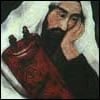What is Torah?
“Torah” means “teaching.” Torah, in its most general sense, refers to the explanations of the responsibilities (mitzvahs) given to the Jewish people by G‑d.
In a more specific sense, Torah refers to the Five Books of Moses, the central sacred text of Judaism, divinely revealed to the Jewish people and taught to them over a 40-year period in Sinai by Moses. Often, when Jews say “the Torah,” they are referring to the handwritten scroll of those five books kept in the ark of the synagogue.
In addition, the Prophets, and Writings, are also called Torah, for a total of 24 books of the Written Torah. These texts, however, do not have the same status as the Five Books of Moses.
Most of the Torah that Moses taught his people was not written down, but transmitted orally. These traditions provide the full meaning of the text and its nuances, which are otherwise often highly ambiguous. We call this the Oral Torah, also transmitted to Moses on Mount Sinai. Eventually recorded in works like the Mishnah and Talmud, the Oral Torah includes detailed instructions and insights for implementing the written commandments, as well as later legislation and accepted customs that have grown out of Torah observance.
Who wrote the Torah?
The authorship of the Torah, commonly attributed to Moses, is not in the conventional sense of an author but rather as a conduit for Divine communication. Moses received direct instructions from G‑d and relayed them in precise articulations, devoid of personal interpretation.
Read: Moses - The Biblical Prophet and Lawgiver Known as Moshe
What are the Five Books of Moses?
The Five Books of Moses, also known as the Torah or the Pentateuch, are the foundational texts of Judaism and comprise the first five books of the Hebrew Bible (Tanakh). They are: Genesis, Exodus, Leviticus, Numbers and Deuteronomy, and they cover Creation, the early history of the Jewish people, and G‑d’s guidelines for Jewish life (mitzvot).
Read: What Are the Five Books of Moses?
How many books are there?
The Written Torah consists of 24 books, including the Five Books of Moses, as well as the Nevi'im (Prophets) and Ketuvim (Writings) sections. Nevi'im includes books like Joshua, Judges, Samuel, Kings, Isaiah, Jeremiah, Ezekiel, and the Twelve Minor Prophets, while Ketuvim includes Psalms, Proverbs, Job, and more. These books contain historical narratives, prophetic messages, and valuable wisdom that contribute to Jewish scripture and tradition.
Explore: The Structure of the 14 Books
What is the Oral Torah?
The Oral Torah refers to the body of Jewish teachings, interpretations, and explanations that were passed down orally from generation to generation alongside the written text of the Torah. The Oral Torah was eventually recorded in written form in works such as the Mishnah and Talmud, becoming authoritative sources for Jewish legal and ethical discussions. It is an essential component of Jewish teachings, providing a comprehensive understanding of Jewish law and tradition.
Read: What is the "Oral Torah"?
Is the Oral Torah from G‑d?
The oral tradition, known as the Oral Torah, carries the wisdom and teachings passed down through generations alongside the written text. It is an essential part of understanding the Torah. The credibility of the elders and rabbis is rooted in the belief that we were instructed by G‑d Himself to establish courts and follow their rulings. Additionally, the rules of interpretation and extrapolation used by the rabbis are part of the oral tradition transmitted by G‑d at Sinai.
Read: Is It Really the Torah, Or Is It Just the Rabbis?
When did Moses write the Torah?
The Talmud presents two viewpoints on when Moses wrote the Torah: one suggests he composed separate scrolls throughout the 40 years in the wilderness and combined them later in his life, while the other posits he wrote all five books near the end of his life.
Read: How and When Was the Torah Written?
Who wrote the rest of the books of the Torah?
The Talmud attributes authorship as follows: Joshua was written by Joshua and completed by Pinchas; Judges and Ruth were penned by Samuel; Samuel himself authored Samuel, with Gad the Seer and Nathan the Prophet completing it. David compiled Psalms, incorporating songs from 10 elders, while Moses wrote Job. Jeremiah authored Kings, his own book, and Lamentations. Isaiah was transcribed by Hezekiah and his colleagues, who also transcribed and preserved Proverbs, Song of Songs, and Ecclesiastes, all composed by Solomon. The Members of the Great Assembly, during the Babylonian exile, wrote Ezekiel, the Twelve Prophets, Daniel, and the Scroll of Esther. Lastly, Ezra wrote the Book of Ezra and Chronicles, which Nehemiah completed.
Explore: The Steinsaltz Neviim
Can people create more Torah?
Although the Torah is Divine instruction, it is constantly being interpreted and expounded upon by its students, to apply its principles to new situations. This is evident in how we've used Torah to address questions related to advancing technology and evolving medical ethics. This process of interpretation isn't just human wisdom but a continuation of the Divine wisdom, as Moses described the event at Mount Sinai as a voice that never stopped. This voice is heard in each generation as new meanings and applications are discovered from the original Torah seed. Caution is advised in this pursuit, however, as attributing something that isn't Torah as such could lead to idolatry. Hence, it is critical to interpret within the framework of rabbinic tradition. Originality and innovation are essential to Torah study, approached with reverence and awe, as a Divine task.
Read: What Is a Dvar Torah?
Is Torah only for Jews?
The Torah, while a pact between G‑d and the Jewish people, offers wisdom and guidance for all. Its purpose is to foster harmony among people and nations, elevating human dignity and fostering unity under a single Creator. Ancient oral Torah traditions, as hinted in Genesis, indicate that G‑d imparted seven commandments to all of humanity—six to Adam and an additional one to Noah—collectively referred to as the Noahide Laws or Covenant. Jews were mandated at Sinai to encourage others to adhere to these foundational principles of human decency, with the Talmud affirming that any person who follows these laws is considered righteous and shall partake in the World to Come.
Read: The 7 Noahide Laws: Universal Morality
Why study Torah?
Immersing oneself in the Torah is less about accumulating knowledge and more about connecting with the Creator's mindset. It's a mutual exchange of spirit, cultivating a shared understanding and alignment of desires. Divine wisdom is experienced through your understanding of the Torah. However, the primary motive for studying Torah is its application.
Read: 5 Reasons to Spend a Semester in Yeshiva
How can I study Torah?
Torah study requires more than a passive absorption of content; it necessitates an active approach characterized by specific methods. Firstly, learning aloud ensures full-body engagement and aids retention. Regular review and singing of the texts can further enhance retention and deepen your connection to the material. Questioning lies at the heart of learning, encouraging individual reasoning and critical thought, which is foundational to Talmudic study. Engaging with a study partner, or "chavruta," allows for robust debate and a more comprehensive understanding of the content. Lastly, immersion in a yeshiva, an institution of Torah study, provides an invaluable opportunity for lively discourse, challenging inquiries, and a vibrant, timeless Torah learning environment.






Join the Discussion